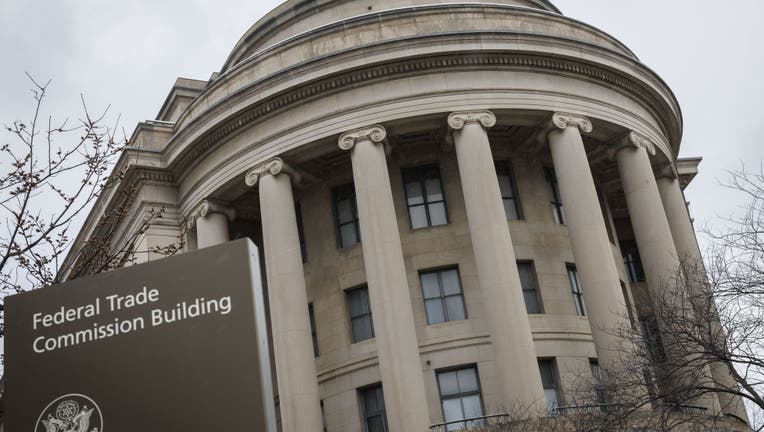Noncompete agreements would be banned under FTC rule; legal challenges likely

Signage outside the Federal Trade Commission (FTC) headquarters in Washington, DC, US, on Friday, Feb. 17, 2023. Photographer: Ting Shen/Bloomberg via Getty Images
WASHINGTON - The Federal Trade Commission on Tuesday voted to ban employees from enforcing noncompete agreements, which bar workers from jumping to or starting competing companies for a prescribed period of time.
However, it's expected that the rule will be challenged in court. If former President Donald Trump wins the 2024 presidential election, his administration could withdraw the rule.
According to the FTC, 30 million people — roughly one in five workers — are now subject to such restrictions.
RELATED: Supreme Court makes it easier to sue employers for job transfers
"Noncompete clauses keep wages low, suppress new ideas, and rob the American economy of dynamism, including from the more than 8,500 new startups that would be created a year once noncompetes are banned," FTC Chair Lina M. Khan said in a news release. "The FTC’s final rule to ban noncompetes will ensure Americans have the freedom to pursue a new job, start a new business, or bring a new idea to market."
The Biden administration has taken aim at noncompete measures, which are commonly associated with high-level executives at technology and financial companies but in recent years have also ensnared lower-paid workers, such as security guards and sandwich-shop employees. A 2021 study by the Federal Reserve Bank of Minneapolis found that more than one in 10 workers who earn $20 or less an hour are covered by noncompete agreements.
RELATED: High inflation is costing Americans an extra $1K a month
The ban was first proposed in January 2023. FTC officials asserted that noncompete agreements harm workers by reducing their ability to switch jobs for higher pay, a step that typically provides most workers with their biggest pay increases.
Business groups have criticized the measure as casting too wide a net by blocking nearly all noncompetes. They also argue that the FTC lacks the authority to take such a step.
The Associated Press contributed to this report. This story was reported from Los Angeles.

